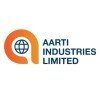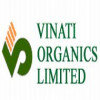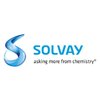
i
Deccan Fine Chemicals
Filter interviews by
Deccan Fine Chemicals Interview Questions, Process, and Tips
Deccan Fine Chemicals Interview Experiences
75 interviews found
I applied via Campus Placement and was interviewed before Mar 2021. There was 1 interview round.
(2 Questions)
- Q1. What are vourious mass transfer operatiions
- Ans.
Mass transfer operations involve the movement of one or more components from one phase to another.
Distillation
Absorption
Extraction
Adsorption
Membrane separation
Crystallization
Drying
- Q2. Explain about batch distillation
- Ans.
Batch distillation is a process of separating components of a mixture based on their boiling points.
It involves heating a mixture in a batch still and collecting the vapor as it condenses.
The components with lower boiling points will vaporize first and can be collected separately.
The process is repeated multiple times to achieve higher purity of the desired component.
It is commonly used in the production of alcoholic b...
Interview Preparation Tips
Graduate Engineer Trainee (Get) Interview Questions asked at other Companies
I was interviewed in Dec 2024.
(5 Questions)
- Q1. What is the working principle of shaft balancing in accordance with ISO 21940-11 and ISO 21940-12 standards?
- Ans.
Shaft balancing in accordance with ISO 21940-11 and ISO 21940-12 standards involves reducing vibrations by adjusting the mass distribution along the shaft.
Shaft balancing aims to minimize vibrations in rotating machinery by adjusting the mass distribution along the shaft.
ISO 21940-11 specifies the balancing process for rigid rotors, while ISO 21940-12 covers the balancing of flexible rotors.
Balancing involves adding or...
- Q2. What does equipment alignment entail?
- Ans.
Equipment alignment involves ensuring that all components of a machine are properly positioned and oriented to work efficiently and accurately.
Ensuring that all parts of the equipment are correctly positioned relative to each other
Checking and adjusting the alignment of shafts, belts, gears, and other components
Using precision tools such as laser alignment systems to achieve accurate alignment
Proper alignment helps pre...
- Q3. Following ASME section ix
- Q4. Following ASME section v
- Q5. Following ASME B31.3
Interview Preparation Tips
Diploma Mechanical Engineer Interview Questions asked at other Companies
I was interviewed in Dec 2024.
(5 Questions)
- Q1. What is API STD 610
- Ans.
API STD 610 is a standard for centrifugal pumps for petroleum, petrochemical, and natural gas industries.
API STD 610 specifies requirements for centrifugal pumps used in the petroleum, petrochemical, and natural gas industries.
It covers design, materials, testing, and performance of centrifugal pumps.
The standard also includes guidelines for pump selection, installation, operation, and maintenance.
API STD 610 helps ens...
- Q2. Why are you use API 510
- Ans.
API 510 is used for pressure vessel inspection and maintenance in accordance with industry standards.
API 510 is a widely recognized standard for the inspection, repair, alteration, and rerating of pressure vessels.
It ensures that pressure vessels are maintained in a safe and reliable condition.
By following API 510 guidelines, maintenance engineers can ensure compliance with industry standards and regulations.
Using API ...
- Q3. What are you used fillar gauge
- Ans.
A filler gauge is a tool used to measure the gap between two objects.
Filler gauges are commonly used in maintenance to check clearances between parts
They are typically made of a set of thin metal blades of varying thickness
The user selects the appropriate blade that fits snugly in the gap being measured
Filler gauges are useful for ensuring proper tolerances in machinery and equipment
- Q4. How many are you being least count diameter
- Ans.
The least count diameter refers to the smallest increment that can be measured on a diameter scale.
Least count diameter is the smallest division that can be measured on a diameter scale.
It is typically determined by the precision of the measuring instrument being used.
For example, if a micrometer has a least count of 0.01 mm, it means that it can measure diameter increments in 0.01 mm intervals.
- Q5. How many are you parts bearing
- Ans.
I am responsible for maintaining and repairing various parts in the machinery and equipment.
I am familiar with the different types of bearings used in machinery such as ball bearings, roller bearings, and sleeve bearings.
I have experience in troubleshooting and replacing faulty bearings to ensure smooth operation of the equipment.
I work closely with the procurement team to ensure we have an adequate supply of bearings ...
Maintenance Engineer Interview Questions asked at other Companies
I applied via Newspaper Ad
(2 Questions)
- Q1. Chemical plant Electrical Related
- Q2. All over Electrical maintenance supervisor relative
Interview Preparation Tips
Electrical Technician Interview Questions asked at other Companies
Deccan Fine Chemicals interview questions for popular designations
I applied via Walk-in and was interviewed in Nov 2024. There was 1 interview round.
(3 Questions)
- Q1. Hard work done as helper
- Q2. Yes can u as helper
- Q3. Treat like grammar
Interview Preparation Tips
Shift Incharge Interview Questions asked at other Companies
Get interview-ready with Top Deccan Fine Chemicals Interview Questions
I applied via Approached by Company and was interviewed in Aug 2024. There was 1 interview round.
(5 Questions)
- Q1. What are you bearing
- Q2. What are you mechanical seal
- Ans.
Mechanical seals are devices that help prevent leakage between two surfaces in relative motion.
Mechanical seals are commonly used in pumps, compressors, and other rotating equipment to prevent leakage of fluids.
They consist of two main parts - a stationary element and a rotating element, which are held together by tension to create a seal.
The seal faces are typically made of materials like carbon, ceramic, or tungsten ...
- Q3. How much are bearing parts
- Ans.
The cost of bearing parts can vary depending on the type, size, and quality of the bearing.
Bearing parts can range from a few dollars to hundreds of dollars, depending on the specific requirements.
Factors such as material, size, precision, and brand can all impact the cost of bearing parts.
For example, a standard ball bearing for a small appliance may cost around $5, while a high-precision ceramic bearing for a special...
- Q4. What are the predictive maintenance
- Ans.
Predictive maintenance involves using data and analytics to predict when equipment failure may occur, allowing for timely maintenance to prevent breakdowns.
Uses data and analytics to predict when equipment failure may occur
Helps in scheduling maintenance activities before breakdowns occur
Reduces downtime and increases equipment reliability
Examples include vibration analysis, oil analysis, and thermography
- Q5. What are you use ISO 28721-1.2019 code
- Ans.
ISO 28721-1.2019 is a code used for establishing a framework for implementing reliability-centered maintenance (RCM) in engineering.
ISO 28721-1.2019 provides guidelines for developing maintenance strategies based on reliability-centered maintenance principles.
It helps in identifying the most effective maintenance tasks to ensure equipment reliability and safety.
The code outlines the process of analyzing potential failu...
Jobs at Deccan Fine Chemicals
(1 Question)
- Q1. What is PRA and how to do the PRA.
Interview Preparation Tips
Process Safety Engineer Interview Questions asked at other Companies
Production Graduate Engineer Trainee Interview Questions & Answers
posted on 16 Sep 2024
(2 Questions)
- Q1. Sepatation technics
- Q2. How to calculate number of theotitical plates
- Ans.
Number of theoretical plates can be calculated using the plate theory or the distillation column design equation.
The plate theory method involves using the equilibrium data for the components being separated and the operating conditions of the column.
The distillation column design equation method involves using the height equivalent to a theoretical plate (HETP) and the total number of plates in the column.
Example: For...
Production Graduate Engineer Trainee Interview Questions asked at other Companies
I applied via Company Website and was interviewed in Jun 2024. There were 2 interview rounds.
(2 Questions)
- Q1. What is favourite subject
- Q2. How inter related to pratical knowledge and theoretical knowledge
(2 Questions)
- Q1. BRIEFLY EXPLAIN Ur family details
- Q2. Why did you here
Interview Preparation Tips
Top Deccan Fine Chemicals Process Engineer Interview Questions and Answers
Process Engineer Interview Questions asked at other Companies
(2 Questions)
- Q1. No idea sir depending on our skills
- Q2. Are you fresher or any experience
- Ans.
I am a fresher with no prior experience in the field.
I recently graduated with a degree in Chemistry and am eager to apply my knowledge in a professional setting.
While I may not have direct experience in production chemistry, I have completed relevant coursework and projects during my studies.
I am a quick learner and am confident in my ability to adapt to new challenges and responsibilities.
Interview Preparation Tips
Production Chemist Interview Questions asked at other Companies
(2 Questions)
- Q1. Brief explain refrigeration system
- Ans.
Refrigeration system is a mechanical system that removes heat from a space to lower its temperature.
Refrigeration systems use a refrigerant to absorb and release heat.
The basic components of a refrigeration system include a compressor, condenser, expansion valve, and evaporator.
Examples of refrigeration systems include air conditioning units, refrigerators, and freezers.
- Q2. How to maintaining parameters of RO plant
- Ans.
Maintaining parameters of an RO plant involves regular monitoring, calibration, and cleaning to ensure optimal performance.
Regularly monitor key parameters such as flow rate, pressure, and TDS levels to ensure they are within acceptable ranges.
Calibrate sensors and instruments periodically to maintain accuracy in measurement.
Perform routine maintenance tasks such as cleaning filters, membranes, and pumps to prevent clo...
Utility Engineer Interview Questions asked at other Companies
Top trending discussions






Deccan Fine Chemicals Interview FAQs
Some of the top questions asked at the Deccan Fine Chemicals interview -
The duration of Deccan Fine Chemicals interview process can vary, but typically it takes about less than 2 weeks to complete.
Recently Viewed
Tell us how to improve this page.
Deccan Fine Chemicals Interviews By Designations
- Deccan Fine Chemicals Process Engineer Interview Questions
- Deccan Fine Chemicals Operations Engineer Interview Questions
- Deccan Fine Chemicals Graduate Trainee Interview Questions
- Deccan Fine Chemicals Graduate Engineer Trainee (Get) Interview Questions
- Deccan Fine Chemicals QC Chemist Interview Questions
- Deccan Fine Chemicals Maintenance Engineer Interview Questions
- Deccan Fine Chemicals Shift Engineer Interview Questions
- Deccan Fine Chemicals Senior Executive Interview Questions
- Show more
Interview Questions for Popular Designations
- Process Engineer Interview Questions
- Operations Engineer Interview Questions
- Executive Interview Questions
- Software Developer Interview Questions
- Business Analyst Interview Questions
- Consultant Interview Questions
- Associate Software Engineer Interview Questions
- Accountant Interview Questions
- Show more
Deccan Fine Chemicals Interview Process
based on 93 interviews
Interview experience
Interview Questions from Similar Companies
Fast track your campus placements
Deccan Fine Chemicals Reviews and Ratings
based on 790 reviews
Rating in categories
|
Junior Engineer
343
salaries
| ₹0 L/yr - ₹0 L/yr |
|
Process Engineer
173
salaries
| ₹0 L/yr - ₹0 L/yr |
|
Senior Executive
143
salaries
| ₹0 L/yr - ₹0 L/yr |
|
Engineer
133
salaries
| ₹0 L/yr - ₹0 L/yr |
|
Senior Chemist
111
salaries
| ₹0 L/yr - ₹0 L/yr |

Aarti Industries

Vinati Organics

Atul

Navin Fluorine International
- Home >
- Interviews >
- Deccan Fine Chemicals Interview Questions















